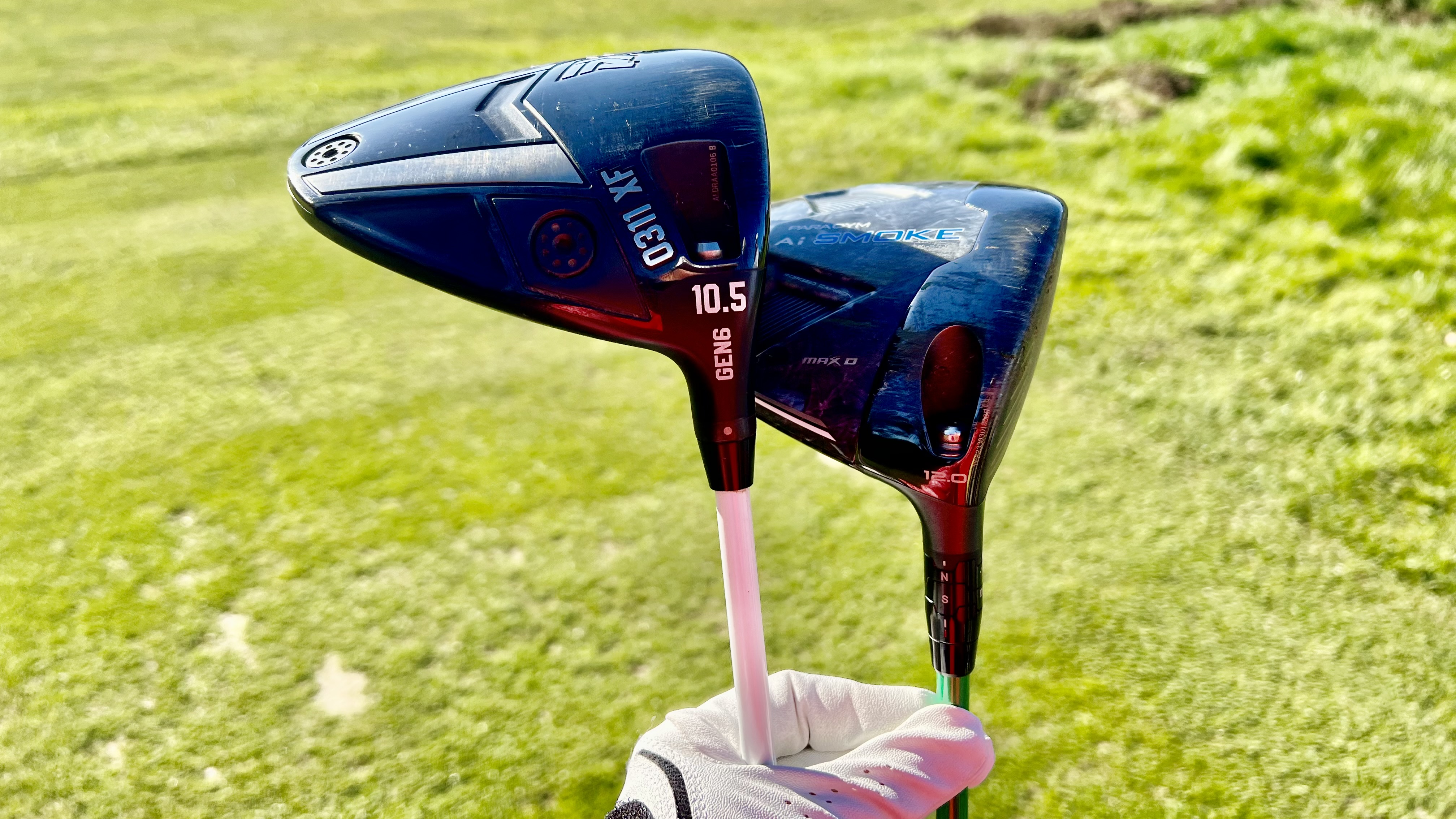What Driver Loft Should Women Golfers Use?
Carly Frost dispels the myth that all women golfers should use a high-lofted driver


There is a big misconception in golf that women need to use a high-lofted driver. Often, it’s driven by equipment experts telling us that with our slower swing speeds we need the extra helping hand to elevate tee shots.
In reality, many women will achieve optimum performance from a driver that has between 9° and 11° of loft - no more - and it comes down to the combination of good coaching and modern driver designs.
The trend in drivers is to place the weight low and deep in the head, which helps give an effortlessly high launch. These designs marry perfectly with the modern coaching method of hitting tee shots ‘on the up.’
Consequently, women who adopt this style of swing don’t actually need a driver that has too much loft. A club with lower loft will achieve more roll out and overall distance.
You only need to take a look at the LPGA Tour to see evidence of this in action. Launch monitors are placed on various tees during tournaments, allowing statisticians to gather driving data from the world’s best players.
The stats show that female pros predominantly use an upward style of swing - in fact, the average attack angle on the LPGA Tour is +3°.
Conversely, on the PGA Tour, it’s typically downward, averaging -1.3°. This is why many LPGA players use the similarly lower-lofted driver heads as their PGA Tour counterparts, despite swinging 20 or even 30 mph slower than the men.
Subscribe to the Golf Monthly newsletter to stay up to date with all the latest tour news, equipment news, reviews, head-to-heads and buyer’s guides from our team of experienced experts.

There is a misconception that all women should use a high-lofted driver
The problem with standard off-the shelf women’s drivers is that they are generally too lofted - sometimes 14° or more - and very lightweight. As a consequence many women hit an unnecessarily high tee ball.
And while it effortlessly launches up, it rarely rolls out upon landing due to the high trajectory of the shot. A lower loft can provide more energy transfer at impact because there’s less of an oblique angle - it’s why your 7-iron flies farther than your 8-iron.
So, as long as you can launch the ball with enough loft through your technique, a driver with less loft will consistently produce more ball speed, even if you have a slow swing speed.
Some custom fit technicians suggest as much as 3mph ball speed gain for a 9° driver compared to a 10.5° or 12° model.
Use Less Loft If You Slice (But Don't Guess)
The over-the-top slice action is the most common swing fault in golf. This move adds dynamic loft to the driver, leading to a high launch and usually too much spin on the ball; it causes the ball to climb high into the air and balloon into the wind.
Club manufacturers have been targeting the mass market “slicers” for years by designing drivers to counteract this common swing style with more heel-biased weighting.
Positioning the center of gravity back and low in the head creates more dynamic loft and is why a lower-loft driver can really benefit a lot of women because it brings the launch angle down and leads to more roll out.

The best way to find the right driver with the right loft is to get custom fitted
Of course, the big but is not to assume that you have the right technique to make a low-lofted driver work. The only way to be certain is to be custom fit by an expert.
Less loft isn’t the answer for all women, especially players who don’t have a positive angle of attack.
But that’s the benefit of going through a driver fitting with an experienced fitter using a launch monitor to help identify the right loft to work with your technique.

Carly Frost is one of the golf industry’s best-known female writers, having worked for golf magazines for over 20 years. As a consistent three-handicapper who plays competitive club golf at Parkstone and the Isle of Purbeck courses in Dorset every week, Carly is well-versed in what lady golfers love. Her passion for golf and skill at writing combine to give her an unbeatable insight into the ladies game.
Carly’s role at Golf Monthly is to help deliver thorough and accurate ladies equipment reviews, buying advice and comparisons to help you find exactly what you are looking for. So whether it’s the latest driver, set of irons, golf ball, pair of shoes or even an outfit, Carly will help you decide what to buy. Over the years she has been fortunate to play some of the greatest courses in the world, ranking Sea Island, Georgia, USA, among her favourite golf resorts. Carly's aptly-named son Hogan is already hitting the ball as far as mum and will undoubtedly be a name to watch out for in the future.
Carly is a keen competitor and her list of golfing achievements are vast. She is a former winner of the South West of England Ladies Intermediate Championship, a three-time winner of the European Media Masters and she once beat an entire start-sheet of men to the title of Times Corporate World Golf Champion. She has played for both the Dorset and Surrey County Ladies first teams and is known for her excellent track record at matchplay.
Carly holds the ladies course record (68) at her home club Parkstone and her lowest competition round (seven-under-par 65) was carded in the pro-am of the Irish Ladies Open at Killeen Castle, playing alongside Solheim Cup superstar Anna Nordqvist. Although her current handicap index has crept up to 3.7 since Covid she has her sights firmly set on achieving that elusive scratch handicap and hopefully playing for her country when she’s 50.
Carly’s current What's In The Bag?
Driver: Callaway Epic Max, 10.5°
Fairway wood: TaylorMade SIM2, 15°
Hybrids: Titleist TS2, 19°, 21°, 24°
Irons: Mizuno JPX900, 5-PW
Wedges: Cleveland RTX, 52°, 56° and 58°
Putter: Scotty Cameron Futura X5
Ball: 2021 Callaway Ladies SuperSoft
You must confirm your public display name before commenting
Please logout and then login again, you will then be prompted to enter your display name.